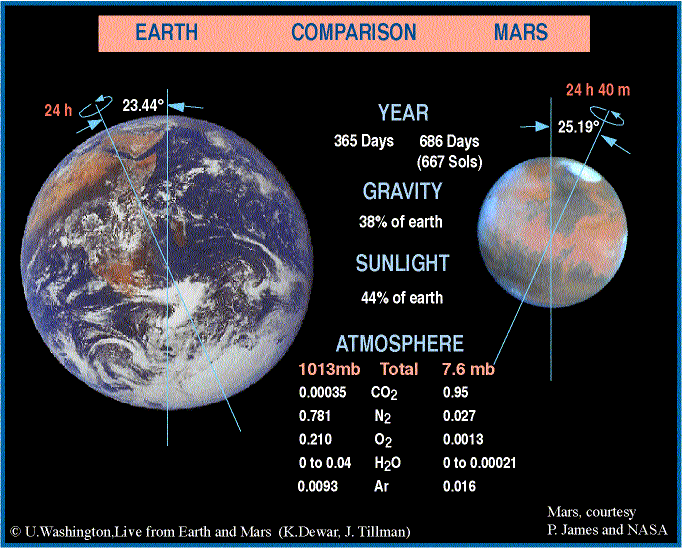
Mars has fascinated us for years. From the time astronomers first turned their telescopes on the planet, we have imagined life there. Science fiction writers like Edgar Rice Burroughs, Ray Bradbury and H.G. Wells have written about life on and invaders from Mars. We have sent robots to orbit the planet, land on its surface, and sample the rocks and soil
This has been the most important question since the time of Percival Lowell. The Viking landers carried out tests for life processes. They incubated soil samples in nutrient soups and looked for the release of gases such as carbon dioxide, methane and oxygen that might result from the activities of bacteria. The results of these and other experiments seemed to show that the Martian soil was chemically active, but not biologically active. Although it may seem unlikely that life could exist in the dry, cold deserts of Mars, biologists have recently found bacteria living in similar environments on Earth, such as Antarctica.
When scientists examined a Martian meteorite found in Antarctica, they saw what looked like fossilized bacteria in the rock. And although this finding has been questioned, it has renewed interest in the search for life on Mars.
Mars formed by the clumping, or accretion, of small objects in the early solar system, which took about 100,000 years. Mars grew and developed a larger gravity field, which attracted more bodies. These bodies would fall into Mars, impact, and generate heat. The continued accretion of impacting material and the heat generated caused the material to sort out into a core, mantle, and crust (the crust may have formed and crystallized from a cooling mantle surface). Gases released from the cooling formed a primitive atmosphere.














1 comment:
I do believe that Mars once held life. Perhaps our ancestors were there a very long time ago. I am always fascinated by news about the red planet and I feel confident that more evidence to support the theory that Mars did, in fact, once have life.
Post a Comment